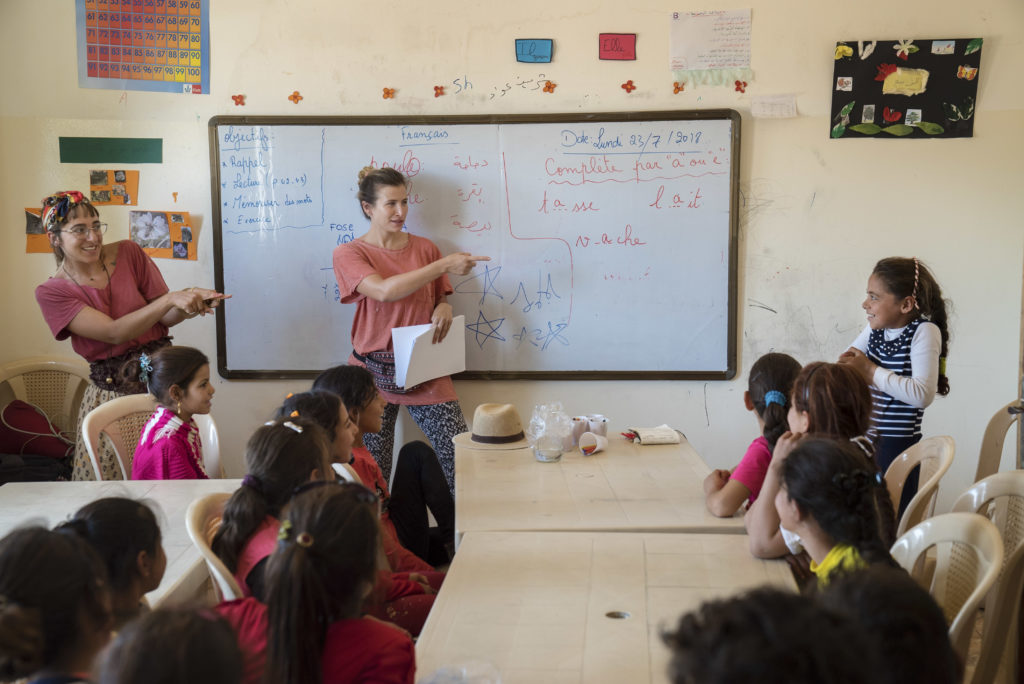Selecting facilitators together with local partners is a key step in preparing the activities. The facilitators of the participatory activities play an important role in working directly with the children, and they can enhance the participatory process and its success. They must possess knowledge and experience of working with children, especially the most vulnerable, using participatory tools. Facilitators should have an understanding of children’s diverse experiences before and after forced displacement, their local context and the children’s roles. They should have completed adequate training, received support to ensure effective child participation, and passed appropriate checks as per local regulations (for example: Disclosure and Barring Service check in the UK).

Good facilitation is key to ensuring the success of children-inclusive design processes, and the facilitators should have specific characteristics to ensure that the children feel safe, comfortable, respected and listened to throughout the process. Each facilitator should:
be a good communicator and listener, while being attentive to children’s non-verbal cues;
have a positive attitude;
berespectful,doesn’tbelittlebuttreatschildren’svoicesasequaltoadults’;
be kind;
be caring;
be sensible;
be flexible;
be patient;
be curious;
be honest and authentic;
be non-judgemental;
enjoy working with children and show interest in what they have to say;
beabletomanagethegroupandensurethatallchildren’svoicesareheard;
speak the same language as the participants.
Having a facilitator whom the children already know and trust, for example their teacher, can help them to feel comfortable. An external facilitator, on the other hand, can bring new approaches that make the experience exciting. Collaborations between teachers and external facilitators are encouraged as they expand the process and methodologies of both practitioners. For example, the external facilitator will gain an inside understanding of socio-cultural nuances within the classroom, which can enrich the research and design process; whereas teachers will gain knowledge of the participatory process and may adopt the approach in future activities. Involving the children’s caregivers as facilitators can extend similar benefits to the community. However, there may be situations where children’s participation couldbelimitedbythepresenceoftheircaregivers.
Children can experience highly distressing events before, during and after forced displacement, and these may have long-lasting effects. Such events may result in physical disability or the deterioration of physical health, cultural and social loss, or psychological suffering such as post-traumatic stress disorder, depression and anxiety. When working with children under extreme conditions, involving a social worker or child psychologist can provide additional support for the facilitator, who may lack this specialised experience. See Plan International’s manual ‘Supporting children who have gone through difficult experiences’ for more guidance.



